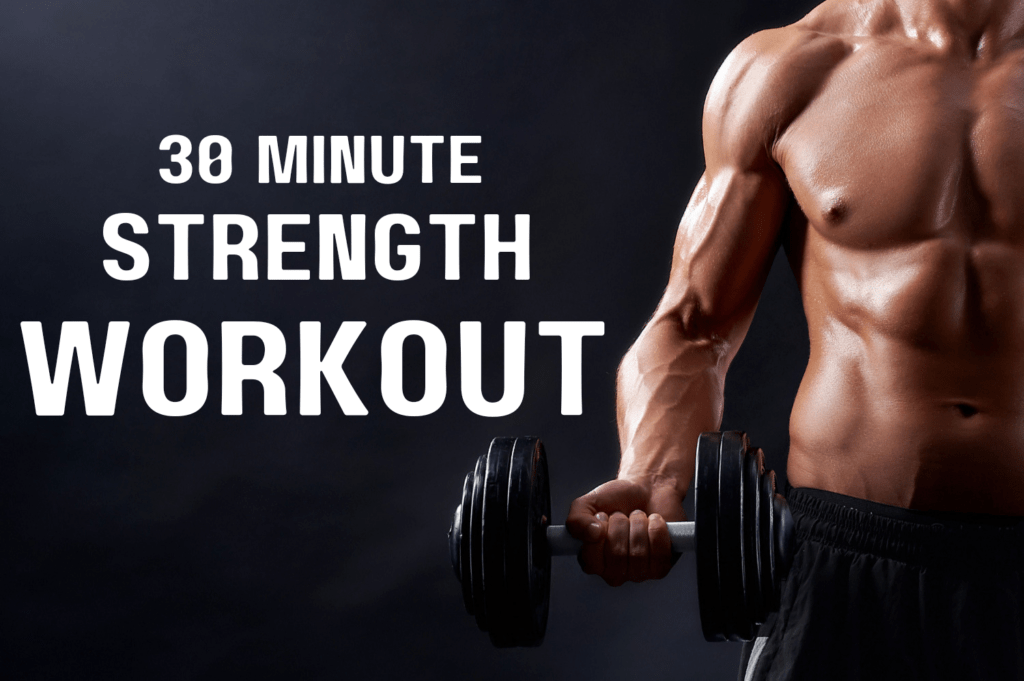When we talk about functional strength training, we’re talking about a smart way to get strong and fit. It’s not just about lifting weights; it’s about making your body work better in your everyday activities.
Why is this important for your fitness routine? Well, it’s like upgrading your body’s software to run smoother. Functional strength training helps you in all aspects of your life, not just the gym. It’s a holistic approach to being healthier and feeling better every day.

Why You Should Adapt Functional Strength Training?
1. Enhanced Daily Activities
Ever felt like daily tasks were a bit of a challenge? That’s where functional strength training steps in, making things easier and more efficient.
Improved Performance:
You’ll notice a boost in how you handle daily activities. Lifting groceries, climbing stairs, or even playing with your kids becomes smoother. It’s like upgrading your body to handle real-life tasks with ease.
Functional Movements:
Functional strength exercises mimic movements you do every day – bending, lifting, twisting. By practicing these, you’re preparing your body for the practical stuff life throws at you.
2. Injury Prevention
Accidents happen, but functional strength training can lower the risks and keep your body resilient.
Strengthening Stabilizing Muscles: Give your body a protective shield. Functional strength training focuses on stabilizing muscles, supporting your joints. Strong stabilizers mean more stable joints, reducing the chances of injuries.
Mitigating Common Injuries: Twisted an ankle or strained your back? Functional strength exercises act as bodyguards. By making your whole body stronger and more flexible, you’re less likely to get sidelined by common injuries.
3. Increased Metabolism and Fat Loss
Who doesn’t want to burn a few extra calories? Functional strength training not only helps shed unwanted pounds but also sets you up for long-term success.
Calorie Burning: Engage multiple muscle groups in functional exercises, and your body burns more calories. It’s a boost to your metabolism, making weight management a bit easier.
Building Lean Muscle Mass: Functional strength training isn’t about bulking up; it’s about building lean muscles. These muscles are like fat-burning engines, helping you lose weight in a healthy and sustainable way.
4. Versatility and Efficiency
Functional strength training isn’t just about lifting weights; it’s about making your workouts interesting and time-effective.
Varied Exercise Options: Say goodbye to boring workouts. Functional strength training gives you a toolbox of exercises targeting different muscles. It’s like having a variety pack for your workouts, keeping things diverse and exciting.
Time-Efficient Workouts: Who says you need hours at the gym? Functional workouts are like multitasking for your muscles. They’re efficient because they work multiple muscle groups at once. In a shorter time, you get a full-body workout that brings results.
5. Improved Core Strength
A strong core isn’t just for show; it’s your body’s powerhouse.
Core Engagement: Think of your core as the center of everything. Functional exercises engage your core, contributing to better posture, balance, and overall stability. It’s like having a strong foundation for your entire body.
Benefits Beyond Aesthetics: A six-pack is nice, but a strong core goes beyond looks. It impacts how you move in your daily life. Imagine standing tall, feeling balanced, and having the stability to tackle any task that comes your way.


Benefits Beyond Aesthetics
A six-pack is nice, but a strong core goes beyond looks. It impacts how you move in your daily life. Imagine standing tall, feeling balanced, and having the stability to tackle any task that comes your way.
Benefits in brief:
Functional strength training revolutionizes your fitness routine, offering a range of benefits:
- Tasks become more effortless, from lifting groceries to playing with your kids.
- Strengthening stabilizing muscles acts as a bodyguard, reducing the risk of common injuries.
- Supercharges your metabolism, burning calories efficiently for sustainable weight management.
- Enjoy diverse workouts targeting various muscle groups, making sessions engaging and time-efficient.
- Elevate your core from aesthetics to a powerhouse, enhancing posture, balance, and overall stability for daily tasks.
Consider making functional strength training a part of your fitness routine. It’s not just about working out; it’s about making every movement count, ensuring a holistic and effective approach to your fitness goals. Embrace the change, feel the difference, and witness the positive impact on your overall well-being.
Ready to take the next step toward a fitter, stronger you? Integrate functional strength training into your fitness journey and experience the transformative benefits it brings.
FAQs
1. What is functional strength training?
Functional strength training focuses on exercises that mimic and improve real-life movements. It goes beyond isolated muscle workouts, emphasizing practical strength for daily activities. The goal is to enhance overall functionality, stability, and balance.
2. What is the difference between functional strength training and HIIT?
While both are effective, functional strength training emphasizes movements replicating daily tasks, enhancing overall functionality. High-Intensity Interval Training (HIIT) involves short bursts of intense exercises followed by rest periods, targeting cardiovascular fitness. Functional training prioritizes practical strength, while HIIT focuses on cardiovascular endurance.
3. What are the 7 functional strength exercises?
Several functional strength exercises can benefit various muscle groups. Some examples include squats, lunges, deadlifts, push-ups, planks, rows, and step-ups. These exercises engage multiple muscles, promoting overall strength and functionality.
4. Is functional training full body?
Yes, functional training often involves full-body movements. Unlike traditional strength training that may isolate muscle groups, functional exercises engage multiple muscles simultaneously. This holistic approach contributes to overall body strength, stability, and coordination, making it a full-body workout.

Pingback: 10 Best High Calorie Food For Bulking At Home -